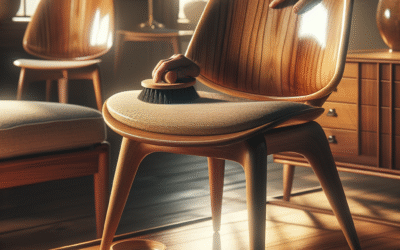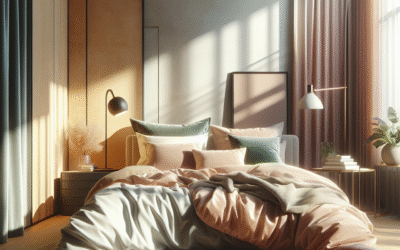
Introduction: Elevating Your Space with Creative Ceiling Paint Techniques
Have you ever looked up at your ceiling and felt it lacked character? This often-overlooked expanse can be a blank canvas, inviting creativity and vibrancy into your space. This article will guide you through creative ceiling paint techniques that will transform your home from ordinary to extraordinary. You’ll learn various methods, tips for implementation, and inspiring ideas that can truly uplift your interior design. By the end of this guide, your ceilings will no longer be plain white surfaces but essential features that add depth and personality to your rooms.
Here’s what to expect: we’ll explore popular techniques, actionable steps, and even case studies illustrating successful ceiling transformations. Let’s dive in!
Understanding Ceiling Paint Techniques
Before diving into unique painting methods, it’s essential to understand what ceiling paint techniques are available, the aesthetics they offer, and how to choose the right one for your space.
The Importance of Texture
Texture can be a game-changer. Adding texture can make your ceiling more dynamic and visually appealing. Options like popcorn, stipple, or even wood can define the atmosphere of a room.
Choosing the Right Color
Color plays a crucial role in any painting project. Lighter colors can open up a room, making it appear larger, while darker colors can create a more intimate, cozy atmosphere. Depending on your ceiling height and room size, the color palette may vary.
Top Creative Ceiling Paint Techniques
1. Bold Color Wash
A color wash involves applying a thin layer of paint over a base color, creating a soft, dreamy effect. This technique works well for those looking to add a touch of color without overwhelming their space.
How to Achieve a Color Wash:
- Choose your base color.
- Mix acrylic paint with water (2:1 ratio).
- Using a large sponge or brush, apply the wash on the ceiling.
- Blend in circular motions to avoid streaks.
- Allow to dry before adding another layer for depth.
2. Two-Tone Ceilings
Creating a two-tone ceiling involves using two distinct colors to accentuate architectural features or simply to add a classy touch. This technique can visually lower a ceiling or enhance its height.
Steps for Painting a Two-Tone Ceiling:
- Decide your color scheme.
- Using painter’s tape, mark the boundary where each color will meet.
- Paint your base color first.
- Peel the tape off and apply the second color.
3. Stenciling Patterns
If you’re looking for something artistic and unique, consider stenciling your ceiling. You can create intricate designs or bold geometric patterns that become focal points in any room.
Materials Needed:
- Stencils of your choice
- Painter’s tape
- Spray adhesive (optional)
- Brush or roller
Steps to Stencil Your Ceiling:
- Secure your stencil onto the ceiling using tape.
- Carefully paint over the stencil with your desired color.
- Remove the stencil and let it dry completely.
- Repeat until you cover the entire area.
Tips for Successful Ceiling Painting
Preparation is Key
Before starting your project, remember that preparation is half the battle. Ensure you clean the ceiling’s surface, remove any old paint peeling, and fill any cracks. Use drop cloths to protect your floors and furniture.
Choosing the Right Tools
Investing in high-quality brushes and rollers can make a significant difference. A paint sprayer can offer an even finish and save you time, especially for larger areas.
Case Studies: Transformations Where Ceiling Paint Techniques Made the Difference
Case Study 1: The Cozy Retreat
A small, dim living room was revitalized with a warm, creamy color wash, giving the owners a cozy atmosphere without closing in the space. The homeowners reported feeling more relaxed and welcomed in their new retreat.
Case Study 2: The Modern Office
A corporate office transformed its boring flat ceiling with a striking two-tone effect, using a soft grey and crisp white. This change not only modernized the look but also improved employee morale, according to feedback.
Tools and Resources for Creative Ceiling Painting
While many techniques can be comfortably tackled by DIY enthusiasts, certain projects are best left to professionals. Here’s a list of resources to help you navigate your painting journey:
- Lowe’s Home Improvement – for materials.
- Home Depot – for tools.
- Various YouTube tutorials covering specific techniques.
Frequently Asked Questions
Can I paint my ceiling a dark color?
Yes, dark colors can add a dramatic effect, particularly in rooms with high ceilings. Ensure appropriate lighting to avoid making the space feel closed in.
What type of paint finish is best for a ceiling?
Flat or matte finishes are generally recommended, as they minimize reflections and imperfections. However, a slight sheen can work in kitchens or bathrooms for easy cleaning.
How often should I paint my ceiling?
It depends on wear and tear, but generally speaking, every 5-7 years is a good timeline. If you notice significant staining or discoloration, consider repainting sooner.
Conclusion: Transform Your Ceiling Today!
Creative ceiling paint techniques can truly redefine your living spaces. We’ve covered a range of methods, from color washes to intricate stencils, empowering you to elevate your ceilings. By integrating these techniques, you’ll not only add aesthetic dimension but also create an atmosphere that reflects your personal style. Remember to prepare adequately, choose the right colors, and gather your tools for the best results. What technique will you try first?
For more interior design tips and inspiration, check out our related articles!
Content Disclaimer
Information provided in this article is for educational purposes only. For professional painting advice, consult licensed contractors or interior designers for tailored recommendations based on your specific circumstances.
Categories
- Accent Walls & Ceilings (84)
- Art Curation & Gallery (83)
- Bedding Style Trends (89)
- Bedroom Makeover (96)
- Bohemian & Eclectic Styles (80)
- DIY & Budget-Friendly Decor (78)
- Eco-Friendly Design (83)
- Furniture Care (87)
- Home Decor & Design Ideas (181)
- Home Wellness Spaces (103)
- Integrated Outdoor Living (91)
- Japandi Style (84)
- Kids and Nursery Decor (73)
- Living Room Decor (99)
- Mix & Match Techniques (95)
- Modern & Contemporary Design (88)
- Rug Sizing & Placement (89)
- Scandinavian Design Inspiration (51)
- Seasonal Home Decor (100)
- Small Space Solutions (93)
- Wall Art & Painting Tips (94)
Recent Comments
Archives
Product Gallery
-
Majestic African Wildlife Canvas Art for Stylish Home Decor
Rated 5.00 out of 5 -
Cozy Irregular Green Plush Rug for Nordic Living Spaces
Rated 5.00 out of 5$43.73 – $275.79Price range: $43.73 through $275.79 -
Scandinavian Geometric Area Rugs for Stylish Home Décor
Rated 5.00 out of 5$32.78 – $496.51Price range: $32.78 through $496.51













